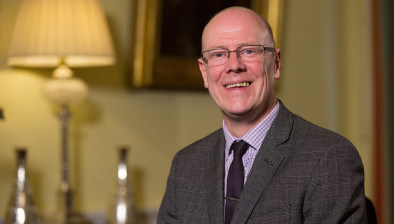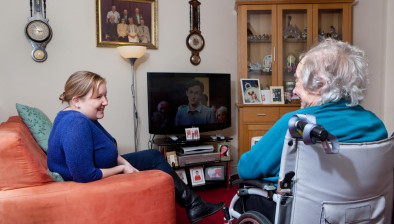Scottish Government voices immigration concerns for social care staff

Ben Macpherson
The new immigration system being proposed by the UK Government would leave Scotland’s vital social care sector critically short of staff, according to a new report.
The Scottish Government’s response to the Migration Advisory Committee’s call for evidence on the UK Shortage Occupation List (SOL) highlights that the social work and residential care sectors are heavily reliant on migrants, with almost 10% of roles filled by workers from outside the UK - the majority of whom would not qualify for a visa under the so-called ‘skilled worker’ route currently being proposed by the UK Government.
Ben Macpherson, minister for public finance and migration, said the remarkable contribution of non-UK citizens working in health and social care, and other sectors, has been brought into especially sharp focus during the ongoing coronavirus crisis.
He said social care roles must now be added to the SOL, in order to prevent a labour shortage in this crucial sector.
The response shows 29,300 non-UK nationals work in health and social care.
Mr Macpherson said: “Care professionals from all over the world have played a vital role in caring for our communities during the COVID-19 crisis.
“It is mind-boggling that the UK Government has introduced a ‘Health and Care visa’, intended to show the UK’s gratitude to frontline workers in these sectors, but that this initiative bizarrely continues to exclude and disregard the huge contribution of social care workers.
“I urge the UK Government to do the right thing and include care workers as eligible for the recently announced ‘Health and Care visa’, so that people who make and have made such an important contribution to our society, particularly recently, can benefit from reduced fees, a fast-track application service, and exemption from the Immigration Health Surcharge.”
He added: “This report, responding to the Migration Advisory Committee’s call for evidence on the UK Shortage Occupation List (SOL), shows how the UK Government’s ending of freedom of movement, and no replacement general route for what they have wrongly and offensively deemed ‘lower-skilled’ migrants, will be damaging to social care provision and key Scottish sectors of the Scottish economy. Adding social care roles to the SOL would allow employers to recruit international workers at a lower salary threshold of £20,480, instead of the proposed £25,600.
“The Scottish Government is clear – we greatly value the skills and contributions of all people who come and settle in Scotland. Inward migration enriches our society for the better and migrants make a net contribution to our economy, our public services and our public finances. Family migration also contributes positively to our demography, and the sustainability of rural and remote communities.”









